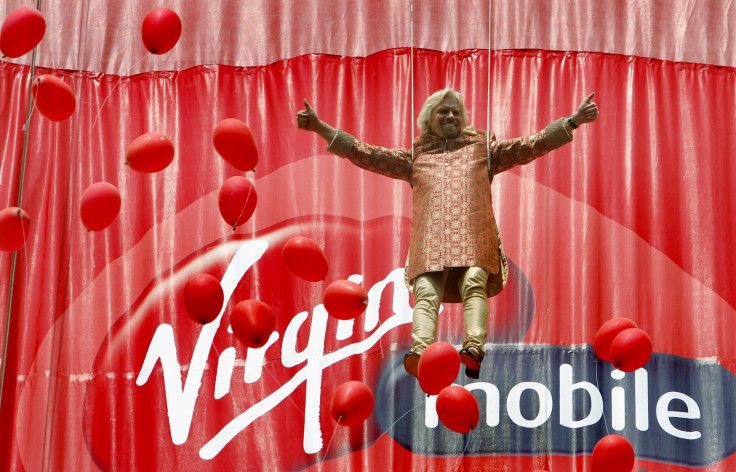Branson’s Virgin Mobile Finances Mideast Expansion With Shariah Financing

A branch of Virgin Mobile has secured $15 million in Shariah-compliant financing as part of a recent push for expansion across the fast-growing mobile markets in the Middle East and Africa. Islamic financing is becoming mainstream these days, as many foreign investors seek to gain a foothold in some of the world’s most dynamic markets.
While not a requirement, Islamic banking is certainly “a smart and practical political choice,” for foreign companies like Virgin that plan to work in the region, according to Saf Elmansour, Middle East and marketing expert adviser at consulting firm Frontier Strategy Group. Shariah-compliant financing is in accordance with Islamic principles, which includes no interest being charged on loans.
“Financing does not necessarily have to be Shariah-compliant but every effort is made to transition the majority of the financial sector towards Islamic banking and finance,” he said, adding that “it certainly looks better to the authorities, the religious elite, and the to public.”
The money for Virgin came from the Bank of London and the Middle East (BLME,) the largest Islamic bank in Europe, as part of a Murabaha agreement, one of the most popular types of Shariah-compliant transactions.
Unlike an interest-bearing loan, it’s similar to a “rent-to-own” agreement, in which the intermediary maintains ownership of the property until the loan is fully paid back, and is often used in asset-based financing.
Virgin Mobile Middle East and Africa (VMMEA), is actually a holding company owned partially by billionaire Richard Branson’s Virgin Group, along with substantial stake for the Gulf Investment Corp., which is wholly owned by the Gulf Cooperation Council (GCC) countries of Saudi Arabia, Kuwait, Qatar, Oman, Bahrain and the United Arab Emirates.
VMMEA is a mobile virtual network operator, which means it doesn’t own the networks it uses, but leases them from conventional operators.
In March, it successfully bid for one of three licenses from the Communications and Information Technology Commission of Saudi Arabia. All three foreign firms were partnered with local providers in a move the regluator said would help increase market competition in the otherwise nationalized market, according to Reuters.
“I am delighted that we are able to bring the Virgin Mobile experience to our Saudi Arabian customers,” said Virgin CEO Richard Branson in a public statement at the time.
“I look forward to hopefully sharing further exciting announcements across the region as we develop in the business.”
Soon after, more than 35,000 people applied for jobs, something that Virgin Mobile Saudi CEO Karim Benkirane called “unprecedented.”
The company was first formed in 2006 and renamed in 2012 after partnering with Dubai-based FRiENDi Group, with plans to launch in more markets across the Middle East and Africa, targeting a customer base of at least 5 million subscribers by 2015.
“The new group has ambitious plans to further strengthen its regional leadership position by launching in more markets across the Middle East and Africa, and is targeting a regional customer base of over 5 million subscribers by 2015 across both the Virgin Mobile and FRiENDi mobile brands,” according to a Virgin spokesman.
The firm now operates in Jordan, Oman and South Africa. Last year, VMMEA launched telecom services in Malaysia, another fast-growing market where mobile penetration passed 100 percent years ago, with an expected user base of 50 million people by 2015.
Malaysia is also one of six fast-growing markets for Islamic finance and home to the second-largest Islamic bank. Shariah-compliant banking assets topped $1.7 trillion last year, a rate that will likely jump to $3.4 trillion by 2018 according to research from Ernst&Young.
“Islamic banks have played an important role in financing infrastructure projects in Muslim countries, and have been a source of funding for foreign companies and joint ventures operating in the Middle East and Asia,” according to a report from the Council on Foreign Relations.
Virgin Mobile is based in the United Kingdom and also operates in Australia, Chile, Colombia, Canada, France, India, Poland, South Africa and the United States. For the quarter ending in March 31 this year, its mobile sector had 2,998,500. Mobile subscription revenue represents 11 percent of total revenue, up 5 percent from the same quarter a year earlier.
And if plans in the Middle East go through, the benefits can only grow. Cisco predicted that the number of mobile phone users in the Middle East and North Africa (MENA) region is growing at an average rate of 77 percent every year to reach 850 million in 2017. The region led the world in terms of mobile data growth, with an increase of 107 percent in 2013.
But there are other considerations.
“Saudi -- not Iran -- is the most conservative Muslim country in the world by a long stretch. As a result, almost all aspects of life operate according to Islamic jurisprudence,” said Elmansour, adding that it regulates everything from politics and economics to diet and hygiene.
So far, it seems that the Virgin brand name hasn’t had any problems. Its website has been up for a few weeks, and all the regional branding appears to be final.
“Surprisingly, it seems they will be operating under the Virgin brand … for now. We’ll see if the [Kingdom of Saudi Arabia] religious elite changes its mind,” Elmansour said.
© Copyright IBTimes 2025. All rights reserved.






















